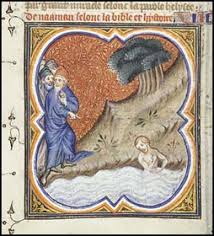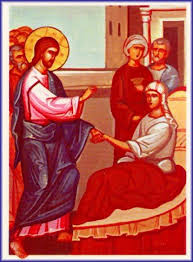February 15, 2009
2 Kings 5:1-14; Psalm 30; I Corinthians 9:24-27; Mark 1:40-45
Leprosy, which today we call Hansen’s Disease, is treatable. So treatable that it can be considered curable. People with leprosy can live normal lives, if the disease is caught and treated on time.
But when the Bible says someone has leprosy, think of if as something really, really bad. It is nearly a death sentence. The person with leprosy moves to the margins of society, not only shunned but feared; not merely sick, but unclean, untouchable, unfit for human companionship.
Naaman was a really powerful man. He was the general of a conquering army. The Bible says that even God thought well enough of Naaman and his skill as a general that God gave victory to this enemy of Israel. It would be like Syria marching in and taking over Israel – as earth-shattering today as it was thousands of years ago. Naaman was the conqueror. The Spanish conquistadores to the Aztecs. The U.S. Cavalry to the Plains Indians. The Roman legions dividing Gaul into three parts.
Astounding, but Naaman has a flaw, which could be fatal. He has leprosy. This apparently not a secret; even the conquered slaves knew this, and one of them, this unnamed girl, dares to speak up and offer a solution. Naaman could be cured, she says, by a prophet in conquered Israel.
So look what Naaman does: the powerful King of Aram sends a negotiator to the King of Israel, to plead for his friend. This approach of power-broker to power-broker does not work. The king of Israel does not trust this request to help
 his enemy.
his enemy. Like the unnamed captive girl, who offers her solution through the back door, Elisha, the man of God – not the man of “the king” – similarly breaks through the official denials. “Let him in,” he says. “Let him learn that there is a prophet in Israel.”
So with his display of power and privilege and wealth and pride, Naaman marches over to Elisha. What happens then? So what do we learn from this story about how God works? Who has power? Who heals? And how? Who makes a difference – who changes the world? Who are we in this story?
Think of who we are, in this church, in this community, at St. Paul’s Table, on Pleasant and Green streets? Where are we in this story of Naaman the Syrian? What needs healing?
The Gospel gives us another story about Jesus healing someone – this time, a leper, like Naaman the Syrian. Jesus says that curious thing: don’t talk about this, he tells the former leper. It’s very curious, isn’t it: why would Jesus want to keep all this good news, these healings and restorations and wonderful things, secret? I think Jesus realizes that there is somethin
 g about the power of healing that upsets the apple cart – it upsets the balance of power. Jesus knows the power of healing. Some people like things the way they are: some people on top, some people sick, some people on the inside track, some people marginal outsiders. For some people this is OK.
g about the power of healing that upsets the apple cart – it upsets the balance of power. Jesus knows the power of healing. Some people like things the way they are: some people on top, some people sick, some people on the inside track, some people marginal outsiders. For some people this is OK. Listen to these verses from the 4th chapter of the Gospel of Luke. Jesus had just taught a lesson from the Torah in his hometown synagogue. All were astounded at his wisdom – “at the gracious words that came from his mouth.” Acknowledging their praise, Jesus then said, "‘Truly I tell you, no prophet is accepted in the prophet’s home town. …There were also many lepers in Israel in the time of the prophet Elisha, and none of them was cleansed except Naaman the Syrian.’ When they heard this, all in the synagogue were filled with rage. They got up, drove him out of the town, and led him to the brow of the hill on which their town was built, so that they might hurl him off the cliff. But he passed through the midst of them and went on his way."
Like it or not, God worms God’s way into our midst. Captive girls speak words of wisdom. Oddball prophets say, sure, let in your enemy; give him a chance. When we ask God to heal us, we have no idea what to expect. We might think things will be the way they used to be, and all of a sudden we are in completely new territory. Someone is healed, someone else is threatened, and all of a sudden the whole world changes before our very eyes.
What will it take to be healed? What will it take for this community to be restored and whole? I think these lessons tell us that that healing will never happen if we wait for the people in power. Look at how God works: from beneath, below, around the corner, from the outside, from the place that surprises us. We may be like that girl who whispers in Naaman’s wife’s ear, or like Elisha who says, sure, let the enemy leader in. We too might be like that former leper, befriended by Jesus along the road, who, despite the risks that somebody powerful might be unhappy, finds it impossible to keep all this good news to ourselves.







.jpg)
.jpg)







.jpg)
